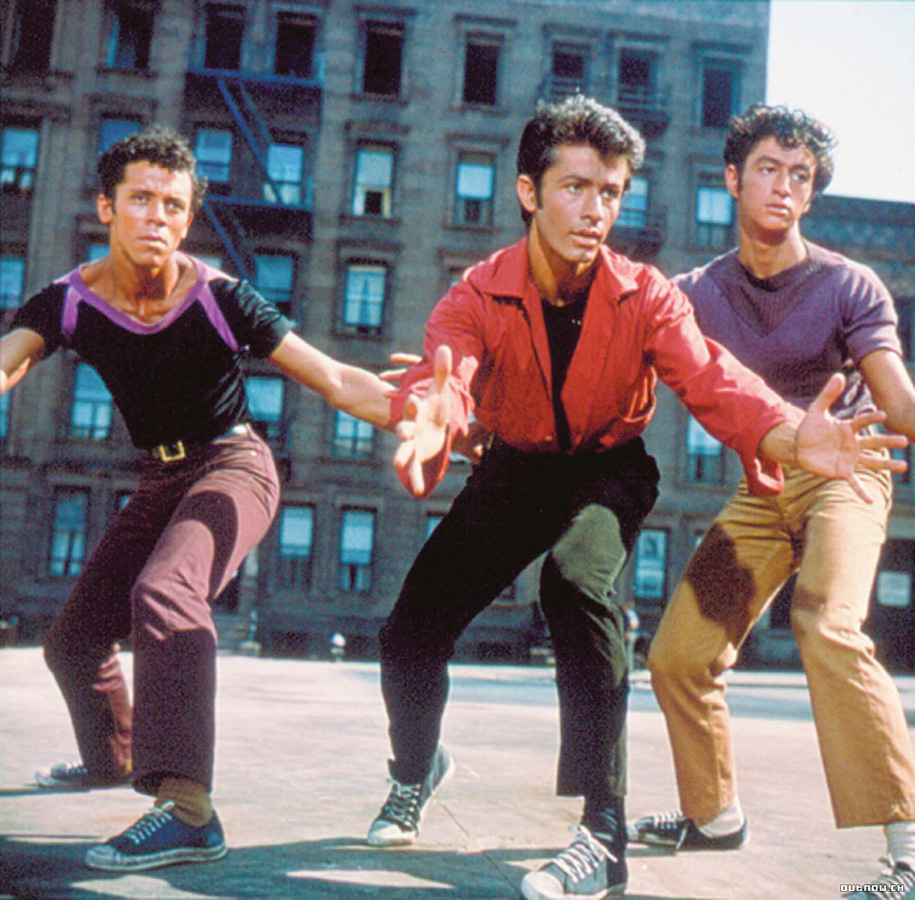
The scene felt like it was in a movie. The mayor, white blond hair flopping in its Dulux dog way, bumbled down a cordoned-off Lavender Hill, past firefighters dousing what used to be a party shop.
His smallish media mob—featuring fuzzy microphones, aides, camera and hangers-on—headed towards the much bigger broom mob, waiting to start cleaning the street. It wasn’t exactly West Side Story but it was, well, pretty strange actually.
—“Cheers and Jeers for Boris from the Bristling Crowd” by Ann Treneman, London Times front page, 10 August 2011
“It wasn’t exactly West Side Story”?! No kidding. But you know that some writers and editors agonized over that metaphor. Couldn’t be too specific. Couldn’t romanticize the wrongdoers. OK to make authority figures bumbling but not thoroughly incompetent or corrupt. Nothing can suggest an agenda. Has to be straight-out hooliganism. No “Les Misearables” comparisons, then. You’d think you’d be history if you quoted Shakespeare either: his passionate agendas and charismatic rulers would eviscerate the extremely simple point that you’re trying to make.
Pity for the London Times, then, that West Side Story—several of whose characters admittedly live and die by street violence—is based on Romeo and Juliet. Other than angry young people throwing things, there’s no useful connection between West Side Story and the riots and looting that have swept through England in the last few days.
If you want to connect a news story about sweeping up the trash in a crumbling class-clashing society, why not go for Mary Poppins, or Stomp? Makes more sense than West Side Story.
West Side Story’s violence is contained, a feud among families and gangs, a neighborhood civil war of vulnerable immigrant communities. The London riots? Not much of a plot there at all.
Reducing unbelievable disaster to the phrase “”like a movie” is a common sort of post-crisis journalistic denial, as if finding order and meaning in chaos must suggest that someone scripted it. The impulse to reduce the inconceivable to images from pop-culture fictions quickly gives way to genuine human survival tales. Today’s heroine is the young woman who was photographed leaping from a burning building. Tomorrow’s stories will be about the cost of rebuilding, and all arts references will be forgotten.
The real shame is that England nurtured a whole generation of playwrights—Edward Bond, Howard Brenton, David Edgar—who’ve eloquently articulated the roots of street violence, social injustice and class warfare. We should looking up those guys rather than finding the most mindless and non-threatening theatrical metaphors for things getting out of hand.
Why analyze, when you can just blame the very last buggin’ gang on the whole buggin’ street? On the whole ever-mother-lovin’ streeeeeeet…
